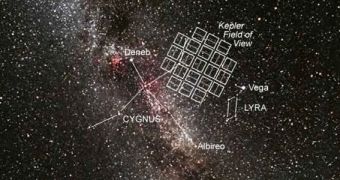Analysts studying datasets relayed back by the NASA Kepler Telescope say that the number of false-positive results in the readings is very small. That is to say, there are very high chances that the vast majority of exoplanetary candidates the mission proposes will be confirmed.
A false-positive result in this scenario would occur when the telescope indicates a dataset as evidence for the existence of an exoplanet, and the object itself cannot be found by other observatories. This is bound to happen, but scientists believe it will be a rare occurrence for Kepler.
This is encouraging news, considering that the science team managing the telescope has just proposed a new batch of 1,094 exoplanetary candidates, in addition to the 1,235 it proposed earlier this year.
The false-positive probability for this mission has been calculated to be lower than 1 percent. This means that 99 percent of these candidates will eventually be confirmed by independent sources, Space reports.

 14 DAY TRIAL //
14 DAY TRIAL //